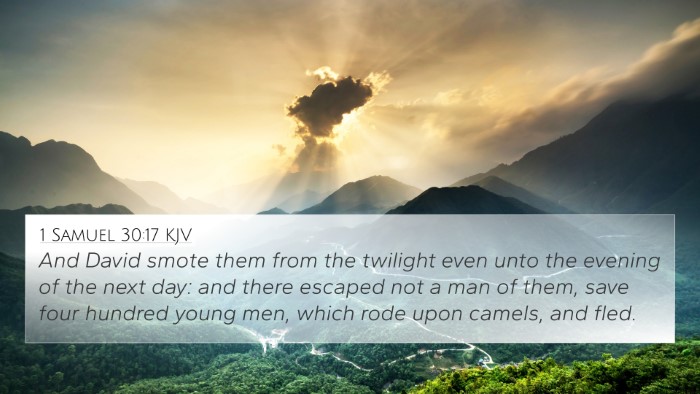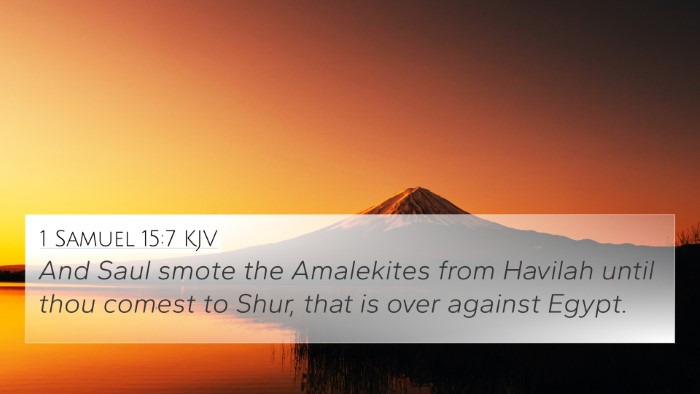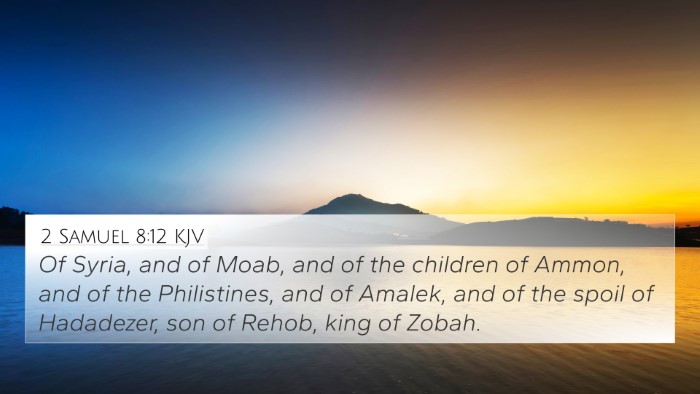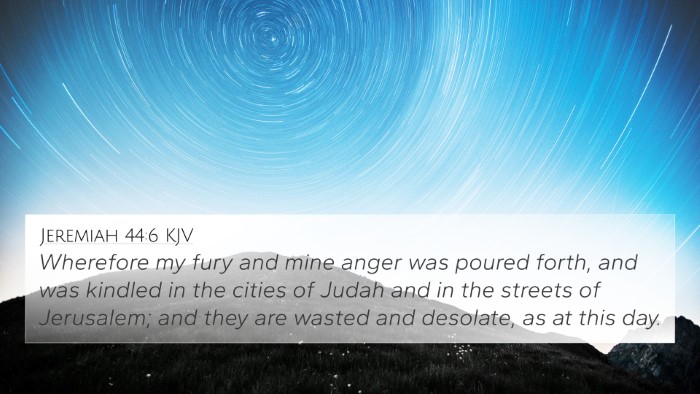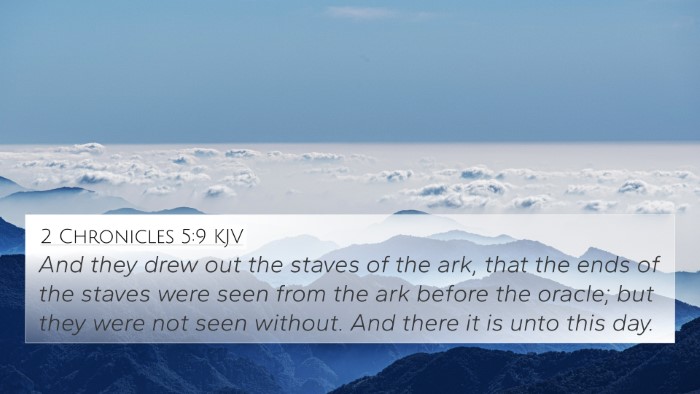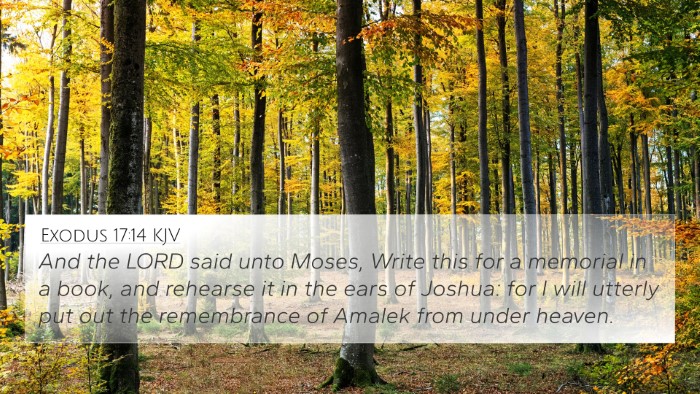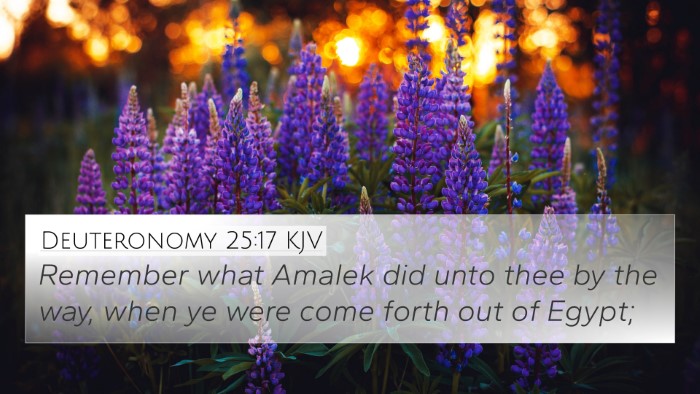Understanding 1 Chronicles 4:43
Verse Text: "And they smote the rest of the remnant that were escaped of the Amalekites, and dwelt there unto this day." (1 Chronicles 4:43)
Summary of Insights
The verse 1 Chronicles 4:43 concludes a narrative on the descendants of Simeon, focusing on their actions against the Amalekites. This account provides both historical context and spiritual implications.
Historical Context
The Amalekites were traditional enemies of Israel, known for their role in ambushing the Israelites during their journey through the wilderness. The mention of their defeat by the descendants of Simeon highlights the ongoing conflict between Israel and the Amalekites, which can be traced throughout the Old Testament.
Theological Implications
This passage underscores themes of divine providence and judgment. The successful defeat of the Amalekites signifies the fulfillment of God's promise to protect and empower Israel against its foes.
Commentary Insights
- Matthew Henry: Emphasizes the significance of the victory as evidence of God's support for Israel, and how the historical accounts serve as reminders of God’s faithfulness.
- Albert Barnes: Points out the enduring nature of this conflict and the importance of the land as a place of settlement for the Simeonites, indicating their divine inheritance.
- Adam Clarke: Highlights the historical continuity of the Israelite struggle and the symbolic victory over longstanding adversaries, encouraging readers to reflect on personal battles in a spiritual context.
Cross-References
To deepen our understanding of 1 Chronicles 4:43, we can explore several interrelated Bible verses:
- Exodus 17:14-16: God commands Moses to record the memory of the Amalekites' defeat.
- 1 Samuel 15:2-3: Saul is commanded by God to utterly destroy the Amalekites, showing the ongoing spiritual battle against evil.
- Deuteronomy 25:17-19: Israel is reminded to remember what Amalek did and to wipe them out so that their memory does not persist.
- Joshua 1:5: God’s promise that no one shall stand before Israel as they enter the Promised Land, reflecting His protective nature.
- Psalm 83:7-8: Lists the Amalekites among the enemies of Israel, showcasing the perpetual conflict.
- 1 Chronicles 4:39-42: Provides a broader context of the Simeonites’ conquests and their settlement in the land.
- Obadiah 1:10-14: Addresses the fate of those who oppose God’s people, a theme echoed in the destruction of the Amalekites.
- Isaiah 11:11-12: Prophetically speaks of the regathering of God's people and judgment on their enemies, connecting back to historical experiences.
- Hebrews 11:32-34: mentions the victories of faith, linking the actions in 1 Chronicles to the broader narrative of God's deliverance.
- Romans 15:4: Indicates that the stories in Scripture are for our learning and encouragement, inviting us to see our struggles reflected in Israel's journey.
Thematic Connections
This verse can also be analyzed in light of the broader themes present in Scripture. The conflict with the Amalekites represents the greater spiritual battles believers face today against sin and opposition. Moreover, it invites reflection on God's faithfulness in delivering His people through trials.
Tools for Further Study
To gain deeper insights into this verse and similar biblical themes, consider utilizing the following resources:
- Bible concordance to find connections between terms and themes.
- Bible cross-reference guide for systematic study.
- Cross-reference Bible study methods that integrate various scriptures.
- Bible reference resources for historical and theological context.
- Comprehensive Bible cross-reference materials for extensive study.
Conclusion
1 Chronicles 4:43 serves as a profound example of God’s guiding hand in the history of Israel. As we link this verse with others through cross-referencing, we enhance our understanding of biblical narratives and their relevance to contemporary faith journeys. The stories of victory, judgment, and providence call believers today to recognize the ongoing presence and power of God in their lives.



